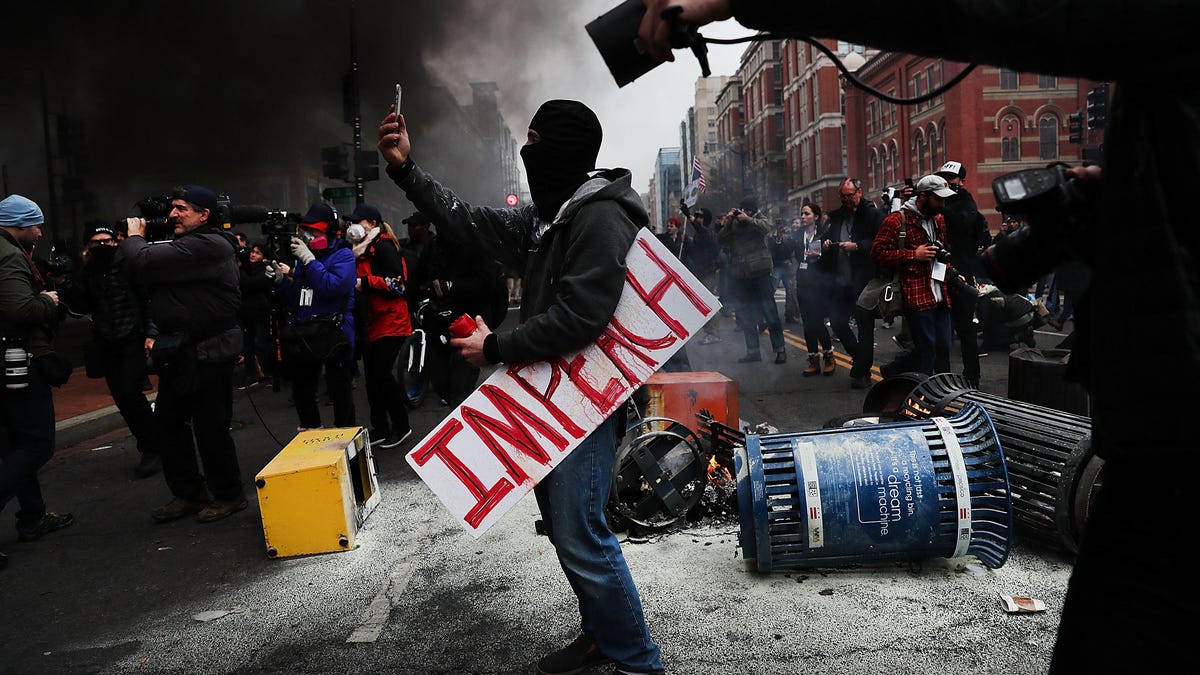Judge orders limits on warrant for data from anti-Trump site
The Justice Department will get access to data that omits identifying information on third-party users.

A protester takes a picture while holding a sign that reads "Impeach" in downtown Washington following the inauguration of President Donald Trump.
A District of Columbia Superior Court judge on Tuesday imposed further limits on a Justice Department warrant for data on an anti-Trump website, saying free speech and privacy must be safeguarded.
Chief Judge Robert Morin's order requires DreamHost, a web hosting company, to turn over data to the federal government on Disruptj20.org, a website used to organize Inauguration Day protests against President Donald Trump. DreamHost has been fighting the government's demands since the original warrant was issued in July.
But Morin's order requires the government to first submit a report detailing its procedures for minimizing access to data and information not covered by the warrant. If the court approves the government's report, the Justice Department will be allowed to conduct its search on data that omits identifying information on third-party users.
"Because of the potential breadth of the government's review in this case, the warrant in its execution may implicate otherwise innocuous and constitutionally protected activity," Morin wrote.
"While the government has the right to execute its warrant, it does not have the right to rummage through the information contained on DreamHosts' website and discover the identity of, or access communications by, individuals not participating in alleged criminal activity."
Raymond Aghaian, an attorney for DreamHost, applauded the order as "an incredible victory for privacy and First and Fourth Amendment rights."
The Justice Department declined to comment, citing ongoing litigation.
The Justice Department's original search warrant asked for email addresses, physical addresses, IP addresses and other information about the website's owners as well as the site's users who may have been involved in violent protests that occurred in Washington on Inauguration Day. The request was later narrowed. DreamHost argued the information could be used to identify people who merely visited the site and didn't participate in Inauguration Day protests that turned violent, calling it "investigatory overreach."
Approximately 230 protesters were arrested, most on felony rioting charges, on Inauguration Day after some protesters threw objects at people and businesses, destroying storefronts and damaging vehicles. The arrests took place in a four-block stretch of downtown Washington around the time of Trump's swearing-in ceremony.

